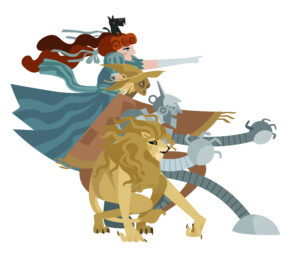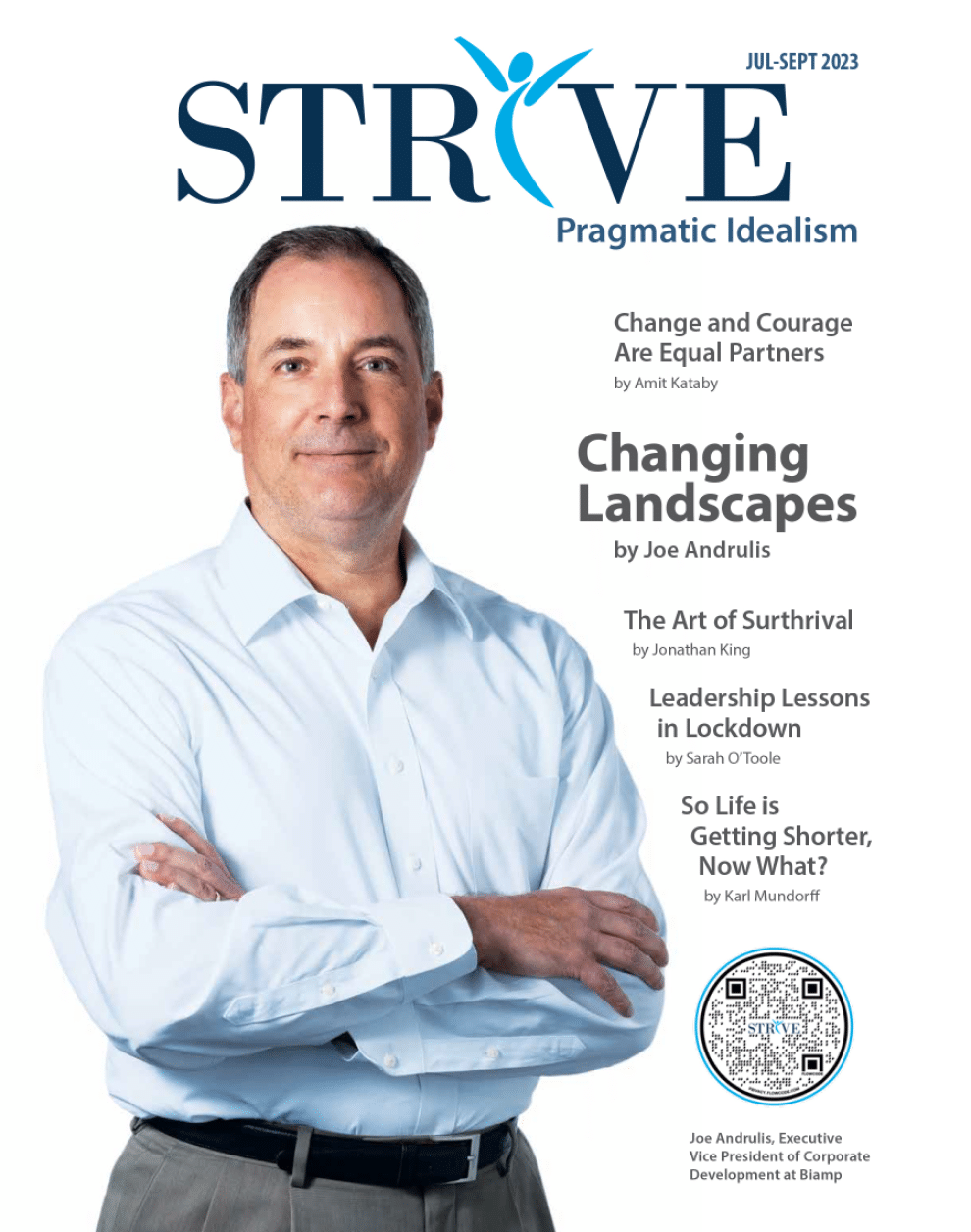 This must be how Dorothy felt when she awoke in the land of Oz – No memory of going on a journey; and yet, waking to a changed world.
This must be how Dorothy felt when she awoke in the land of Oz – No memory of going on a journey; and yet, waking to a changed world.
We have all heard the adage: It takes 21 days to form a new habit. If true, or even close to accurate, can you imagine the impact that approaching 730 days (2-years) of life in this Covidian Oz will have had on our behavior, values and culture? This is the power and habit-changing force of the pandemic. Viewed in this context, the idea and dream of a return to normal appears absurd, and its pursuit, a fool’s errand.
Reflecting on my own experience, the impact of the past two years has been striking and transformative. Pre-pandemic, my wife and I would dine-out for 90 percent of our meals; a fact that does not fill me with pride. It was a habit formed while starting our business in our home. After a day of toiling in our basement office, we needed a change of venue, a glass of wine, a good meal and fresh faces to relieve the claustrophobia of the day. A year-and-half after launching our company, we moved our business and our workday out of the house, but the habit of dinning out persisted for the next 20 years; that is until the pandemic forced a change of behavior, a reset of priories and values. As of this writing we have not dined out, except for a handful of lunches when schedules required it, or when traveling of course, since March 18, 2020.
Likewise, in the pre-Oz world, face-to-face business meetings and events were compulsory, but no longer. The pandemic demanded everyone make a choice; become video communications competent, technically as well as interpersonally, or face isolation from family and friends, and irrelevance in business. The result for me and my company? The perceived distance of conducting business from Alaska shrunk dramatically. Today we travel less, but we are more connected and benefit from stronger relationships. In person business meetings are still critically important relationship builders, but for me and those I work with, the ROI calculations associated with business travel have shifted dramatically.
COVID not only affected our culinary preferences and travel choices, but it also altered countless other aspects of our lives; the way we dress, and our overall style-values are easy but subtle examples. The decline in air travel and the impact on America’s culinary scene are well documented in the headlines, but arguably more profound, will be the impact these less visible, but cascading lifestyle choices will have on the thing we once called normal.
The COVID “Grow-Out” is one these small but consequential shifts. That’s how my wife’s hairstylist refers to a swing in behavior that has dramatically impacted her business. Apparently, working from home as relived many of the pressure that once powered the demand and desire for hair color appointments; accordingly, it has also diminished a major source of revenue forcing cascading changes of its own. Likewise, in my world, sport coats and slacks were once the uninform of my trade. A social standard directly benefitting retailers, drycleaners, and their chain of supplier; no more, I have worn neither since the pandemic began.
The list is endless and cascading. Lockdowns and required social distancing, along with the threat of infection, forced innumerable shifts in behavior that will likely persist. Bikes and hikes supplanted bowling allies and gyms. New TV’s, Netflix and online gaming careened into demand for movie theaters and other public forms of entertainment, with effects that extend deep into their supporting supply chains. Normal is being transformed; not by the pandemic, but by our response to it. It’s impact providing each of us with a new perspective against which we are reassessing our personal values and by extension, how we vote with our dollars.
There are some that will view the perspective of the normal we once knew being rendered permanently obsolete as highly disturbing, even blasphemous. But to paraphrase Dorothy: we are not in Kansas anymore. And like, Dorothy and her traveling companions, we have all been transformed and grown because of our pandemic experience. After tapping her heals three-times and returning home Dorothy discovered the place she remembered was different, not because it had changed, but because she had.














































Well said, Rick. Perhaps part of the new normal in higher education is more people getting degrees online. Oregon State University now has a quarter of it’s students are Ecampus students who come from all 50 states and 20 foreign countries. And, we just had our largest enrollment in our history. Where society goes from here is going to be very interesting.
Fascinating stats, thanks for sharing! Changing enrollment and attendance profiles will also impact facility requirements across the entire education ecosystem. It will be interesting to see how this plays out; especially, in more rural setting where satellite campuses also serve as community centers.